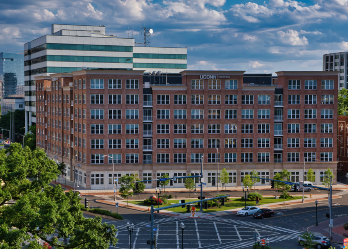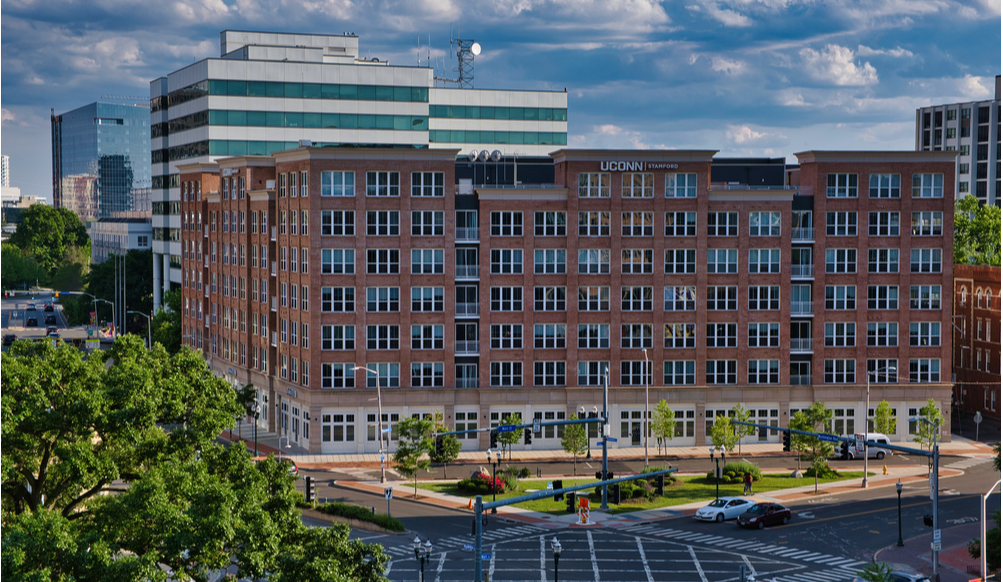
GREG PATTON/Shutterstock
Residence life has changed dramatically over the past decade, let alone the past several years. Learn what’s new in residence life and how the field adjusts to ever-changing environments. Anyone looking for employment in student affairs and residence life can check out The Placement Exchange’s Virtual Spring 2022 event that hosts many employers and job seekers. Comments in this interview have been provided by Pam Schreiber, ACUHO-I President and AVP & Executive Director, Housing & Food Services, University of Washington and D’Najah Pendergrass Thomas, director of The Placement Exchange.
Kelly Cherwin, HigherEdJobs: Can you highlight some of the biggest changes in residence life over the past 10-15 years?
Pam Schreiber, ACUHO-I President and AVP & Executive Director: A lot has changed on both the macro and micro level, but two significant and over-riding issues immediately come to mind. First, the number of students experiencing mental health issues that negatively impact their academic progress has steadily increased. Because of the stigma attached to seeking help and the strain on campus mental health resources, these issues manifest in ways that are challenging to the residential community and those who work in campus housing. While the stigma is decreasing, it continues to be critically important that residence life is central to a campus’ efforts to provide support to students and in creating a culture that encourages openness and help-seeking behaviors. Residence life staff must approach this issue from multiple fronts: the well-being of students; providing staff with the appropriate training and support; supporting staff who may experience mental health concerns, including secondary trauma; and tending to their own personal well-being.
Second, the expectations of students and their families about the type of experience students will have while attending the institution and living in residence have evolved and expanded. For quite some time, the engagement of parents in the lives of their students has been increasing in frequency and intensity. Much of this has been very understandable and welcomed by institutions of higher education but it has also necessitated changes in policies, protocols, and services. More recently, and because of the pandemic, many students attending college today and for the next several years have “missed out” on signature events and experiences, feeling somewhat short-changed. Frustration levels are high and, in turn, so are expectations that everything is to go well all the time and in every circumstance.
Cherwin: An article back in 2021 stated that “there will be long-term changes to the student housing landscape” after COVID-19. What are those long-term changes?
Schreiber: The pandemic has certainly presented challenges to on-campus housing programs in almost every way — student engagement, facilities, operations, and protocols. Some, if not many, of the adjustments made during this time will remain in place for a host of reasons but primarily because they result in better service to students. Certainly, any process or service that was automated or otherwise capitalized on new technology will not revert to how it was previously done
Also, I believe that going forward, those engaged in on-campus housing program planning will look differently at room configuration, bathroom privacy, and other physical aspects that can offer flexibility regarding use.
While we experienced an understandable level of concern for personal safety as we faced COVID-19, we also witnessed the very strong desire by students to live and learn in community. Living in residence completes the student experience on a college campus, and students recognized — especially after they were unable to do so — that this is hugely important to them, and something is missing without it. In addition, on-campus housing can and does offer a level of safety and security — through protocols, staffing, and other resources — that students and their families appreciate and desire.
Cherwin: It has become common practice to “build in flexibility so spaces can adapt to changing conditions.” What is one example of a building or facility that you have seen drastically transformed and adapted over the past three years?
Schreiber: Long gone are the days of computer labs and floor lounges with an old TV! Community spaces remain important to the overall residential experience but how these spaces are used drives their design. Accommodating individual, small group, and large group activities requires flexibility in space, furnishings, and access. These areas must be able to support a range of technology needed for a range of activities, including formal instruction, social events, and semi-structured student programs such as performances and maker fairs.
One of the most unique additions to our residence halls at the University of Washington has been maker spaces; i.e., community spaces outfitted with equipment that includes 3D printers, laser cutters, art and design tools such as advanced sewing machines, small tools and workspace for printed circuit board and interactive electronic objects work, and a kiln. Students use these spaces to design, engineer, build, test, and experiment with — often in interdisciplinary teams — prototypes and tangible samples of their ideas. These spaces evolve as new technology emerges and as students and faculty seek new approaches to learning and discovery.
Cherwin: What does the future of campus housing, especially considering the growing interest in online degree programs, look like?
Schreiber: While alternative methods for obtaining credentials including college degrees have been around for quite some time, there’s no doubt that the past several years have highlighted this option. Not only have institutions been pushed to offer more online options but the quality of those offerings has improved due in large part to technology and simply having to learn how to do it. In addition, more people have engaged in online learning than ever before so their exposure to this option has demonstrated the many benefits especially regarding access.
With that said, this option is not preferred by all. For those who desire other aspects of the college experience — namely campus engagement and community living — learning and living on the campus is unique from a strictly online experience that occurs away from the campus. In addition, I don’t believe these are necessarily discreet scenarios. Even prior to the pandemic and the pervasive use of online instruction, there certainly were students participating in online courses from the comfort of their on-campus residence hall rooms!
Cherwin: Commuter lounges, and other commuter specified areas, are becoming more common on college campuses, how does res life work with these facilities?
Schreiber: Residence life professionals are experts at building community using physical space as the centerpiece for engagement. These professionals have a lot to offer the institution in knowing how to create community among students by finding the commonalities regarding interests but also barriers and challenges. Whether residence life professionals work formally or informally with commuter student spaces is likely due to institutional choices; either way, there is opportunity to use the same strategies for community development in these spaces as in on-campus residences.
Cherwin: What would you recommend for someone looking to work in residential life/housing?
Schreiber: The work is challenging considering we interact primarily with young adults who are in a transitional phase of their lives which is full of new and stressful experiences. It can be one of the most rewarding areas within higher education to work given the opportunities to influence and help craft the trajectory these students take during and after their collegiate careers.
I believe the field will see significant changes over the next several years and we need people who are creative, nimble, and resilient. Core to any changes will be the belief in the student experience as transformative and an understanding of how the residential environment can impact student growth and development. How we do our work is less important than why we do it and the outcomes we seek for our students.
Upcoming ACUHO-I Events
ACUHO-I and The Placement Exchange (TPE) virtual interviewing event is coming up March 14-17, 2022. D’Najah Pendergrass Thomas, MDiv, MS, director of The Placement Exchange shares her advice for anyone attending the event.
Cherwin: Your upcoming virtual interview event, a one-stop shop for student affairs positions, offers the opportunity for interviewing, career development, resume review, and more. What advice would you provide to someone who is virtually attending the event in terms of how they can succeed and possibly secure their first, or next, position in the area of student housing and residential life?
D’Najah Pendergrass Thomas, TPE Director: First, I would encourage candidates to do their research. Be familiar, not just with the job post but the employer posting the job and ask yourself if the job and employer – location, culture, etc. align with your core values and needs at this time.
Second, I would encourage candidates to come up with the list of things you need to ask the employer to help you discern if the job is the right job for you and be honest with yourself. Ask about supervision, development – not just funds, but cultivation, coaching, and mentorship, and leadership and decision-making structures and processes. Then ask about life outside of work. Will you be able to do things that are important to you feeling affirmed in your identity and experiencing community (e.g., getting your hair done, attending a place of worship, continuing counseling or therapy services, joining a gym, etc.).
I would also encourage candidates to avail themselves to candidate connection offerings from TPE. We have candidate connections each month on topics ranging from how to navigate a virtual job interview process, to salary and negotiation, to defining one’s own standard of professionalism and interviewing with authenticity. Moreover, candidate coaching will be available during the TPE week. Drop in and talk with a coach to debrief your interview and strategize for your next interview.
Last, but of utmost importance, have a plan for taking care of yourself during the process. Nurturing your mental wellbeing during an extensive process like TPE is just as important as preparing for your interviews. You will hear “yes” and “no” during this process and the interview days can be long. Have an intentional strategy for how you will nurture your mind and spirit as you hold this reality in tension while navigating multiple interviews. Utilize your schedule to block personal time so that you can step away, go for a walk or to the gym, or engage in the activity that best helps you manage stress. This year we will also offer a virtual wellbeing space. Please stop by to take a moment to breathe, (re)focus, and engage in a grounding or meditative practice.
